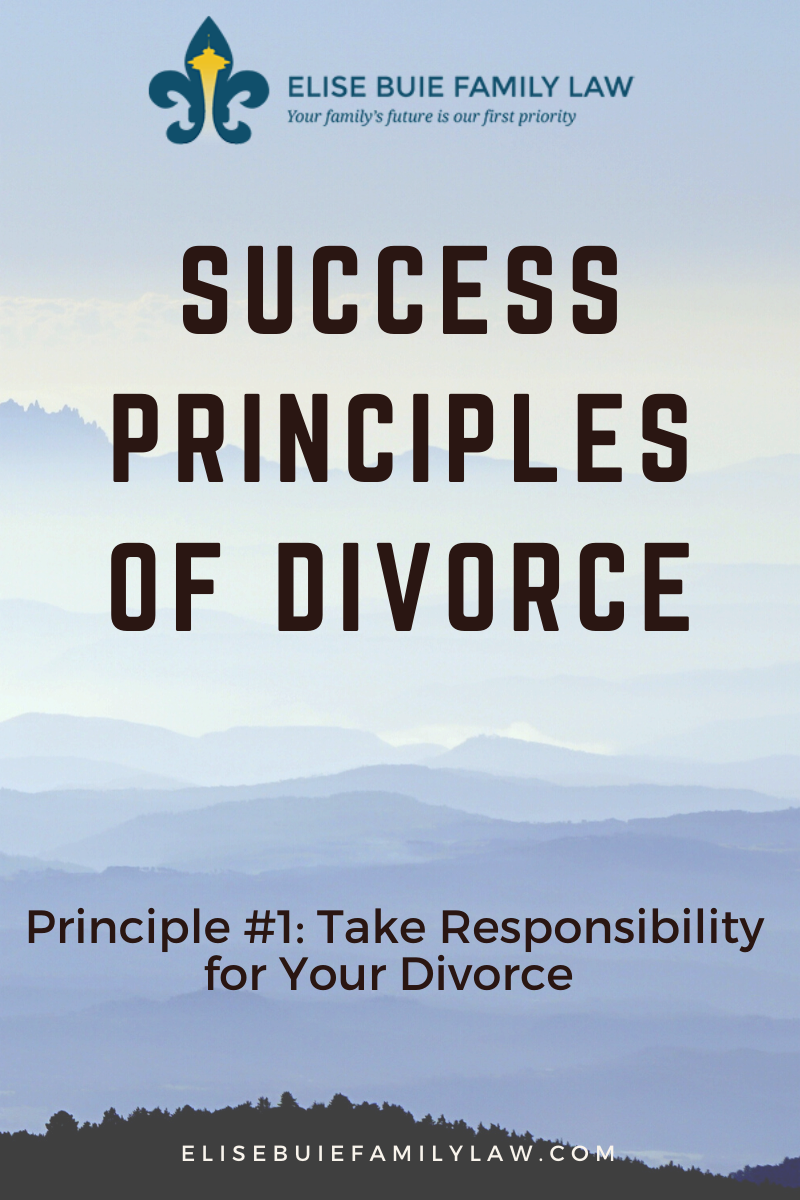After many years of practicing Family Law and helping clients navigate divorce, I wrote about the defining principles that make or break my clients’ success. Over the next few weeks, we’ll be diving into each of the five “Success Principles of Divorce” on our blog. Check out this week’s breakdown of Principle #1.
Principle #1: Take Responsibility for Your Divorce
Taking responsibility means accepting blame and sitting with feelings of defeat rather than deflecting. It is easy to think of divorce as a tragedy that is entirely out of your hands: “My ex blew up the marriage.” “She cheated.” “He behaved like a jerk.” It is all so familiar but, of course, not entirely all true. Your ex did play a role in your divorce. But the truth is that you were a player in your divorce, too.
Until you take responsibility for your own behavior patterns and negative contributions, you will be stuck in the victim mindset. You are not a passive player in your life.
Deflecting responsibility impedes your ability to achieve success during and after your divorce because this mindset will alter the way you approach your divorce. You may let other people, such as your lawyer, take charge of your divorce. That may easily prolong the divorce process, which would, in turn, hurt you and your children.
You have the power to set the tone of your divorce. This is your opportunity to model the behavior you want to see, be the leader and set an example that your ex will likely follow. The most successful divorces are civil and involve displays of mutual respect even in the most difficult moments.
Your relationship with your ex in the present will set the foundation for your relationship with your ex in the future. It is essential to make sure this foundation is sturdy, built brick by brick with stability instead of strife. The realization that you are responsible for your divorce, not external forces, is essential to setting the foundation for the future you will share with your ex as co-parents. More times than not, your ex will follow your example and return your cooperation with more cooperation. This course will trickle down to your children, who will learn to associate healthy relationships with collaboration.
What you need to realize is that you are, in large part, responsible for your divorce, so you must take the reins and lead. It’s hard to have a particularly “messy” divorce unless both parties contribute to the mess. You know what they say, it takes two to tango, and there’s no area of life where that is truer than in the toxicity that can surround divorce.











